How to get back to sleep when you wake up in the middle of the night
Wondering how to get back to sleep? Try these expert hacks to help you nod off again


Figuring out how to get back to sleep after you've woken up can be tricky. Wide-eyed wakefulness at 3 am isn't uncommon, but disturbed sleep can hurt both our physical and emotional health. Fortunately, there are many snooze-inducing tools you can enlist to ensure you still wake up feeling refreshed.
But first, it's important to note that waking up in the small hours is totally normal and shouldn't be a cause for concern. However, if it persists then you may be suffering from sleep-maintenance insomnia. Causes can include everything from a stressful work schedule to consuming caffeine a little too late in the day, but the good news is there are things you can do to get your sleep back on track.
To help you boost your chances of quality slumber and fall asleep in three minutes or even less, we've called on top sleep experts to share their wisdom. They'll reveal the best ways to drift off again in the small hours, how to get to sleep quicker if you struggle to nod off, and when it's time to go to the doctor. Because sometimes even following the best sleep meditation guides or spritzing the most calming sleep mist just isn't enough to help you get back to sleep - although it can certainly help.
How to get back to sleep
1. Begin with meditation
The first step is to not become anxious about having woken up. "Don't check the time," insists Dr Nerina Ramlakhan, sleep expert, neurophysiologist. "By doing this, we bring ourselves into full wakefulness and it is harder to get back to sleep."
If you're wondering how to get back to sleep then turn to meditation. "Breathe deeply from your diaphragm and tell yourself that it doesn’t matter if you don’t fall asleep and that you will just use the time to rest and relax," explains Dr Ramlakhan, who is also the author of Finding Inner Safety. "We want to trigger the production of oxytocin, the love and trust hormone, which induces a feeling of inner safety and peace. When we feel safe, we produce melatonin, and we sleep."
Studies by Srinakharinwirot University have found that meditation can decrease our levels of the stress hormone (cortisol), which is often elevated when we wake up. Guided meditation for sleep, as featured among the best meditation apps, can help with this if you're new to the practice - although be sure to turn on 'Sleep Mode' if possible on your phone while scrolling for one, otherwise the technological light could keep you awake.
2. Try a full body scan
Another mindfulness exercise you could try is the so-called 'body scan', suggests sleep coach Tracy Hannigan.
Sign up for the woman&home newsletter
Sign up to our free daily email for the latest royal and entertainment news, interesting opinion, expert advice on styling and beauty trends, and no-nonsense guides to the health and wellness questions you want answered.
"Start at the feet and observe them and say 'my feet are asleep, my feet are asleep, my feet are asleep', and slowly work up through the body, down the arms and up the neck and face. By doing this, we also gently tell ourselves we are already in the state we wish to be in," she explains. "And focusing on the body in this way can help you quiet a whirring brain. We can't ruminate or worry while repeating a mantra that a certain body part is asleep."
Incorporating mindfulness into our wind-down routine can help us fall and stay asleep, studies show. Research from the University of Southern California looks at this idea in particular and found that those who regularly practice mindfulness meditation experience less insomnia, and fatigue, and have a lower risk of depression than those who don't.
3. Use breathwork
Much like these meditation and mindfulness techniques, breathwork can be another one for helping us learn how to get back to sleep when we wake up in the middle of the night. It helps to prepare our minds for rest and if we know how to use it properly, our breath can be a valuable tool.
Studies from Augusta University show breathwork is an effective treatment for those suffering from insomnia and sleep apnea. It can also help you get back to sleep in the first few hours of the morning if you're consistently wondering why am I waking up early.
"This simple breathing meditation can help you get back to sleep," says Dr Ramlakhan. "Lie down and relax into the feeling of your bed. Enjoy the sensation of being supported and the feel of your bed sheets and pillows. Close your eyes and bring your attention to your breath. Breathe out to the count of four and then breathe in. Notice the natural rhythm of your inhale and exhale."
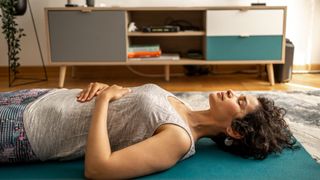
4. Use the 20-minute rule
If you're awake longer than 20 minutes, it might be time for a different approach. “Leave the sleeping zone if you can't get back to sleep,” advises physiotherapist Sammy Margo, who specializes in helping patients get better sleep. “Get out of bed, make it, and walk away. Go do something that’s not too taxing, such as reading a magazine article or unloading the dishwasher."
Then, return and start your bedtime routine again. "You want to activate your parasympathetic relaxation system," explains fellow sleep expert Charlie Morley, a specialist in mindfulness practices and lucid dreaming. Perhaps try some bedtime yoga or listen to meditation to encourage your body and mind to wind down before you get into your favorite sleeping position."
5. Avoid blue light
While you might be tempted to reach for your laptop to check emails or watch an episode on Netflix, it will only put you further away from nodding off. "Blue light exposure suppresses the sleep hormone melatonin," warns Margo. "Instead, try listening to an audiobook or doing some meditation."
You could also try a visualization. A study by the University of Oxford found that people who used imagery distraction - in which they visualized a peaceful setting or environment - fell asleep faster than those who did not. “Often, you will drift off while doing this,” says Margo. “But if not, employ the 20-minute rule and leave the sleep zone if this isn’t working.”
Whatever you do, try not dwell on the frustration of being awake. "This will only increase your anxiety and inhibit the restful state needed to fall back to sleep," neurobiologist and sleep expert Dr Verena Senn.
6. Grab a notepad
A key driver behind sleep disturbance is stress. Fortunately, research by Eastern Michigan University has found that writing can help organize your thoughts and empty the mind of worries.
“If anxious thoughts are preventing you from getting back to sleep, keep a notepad beside your bed so you can scribble your worries down if you wake up during the night,” suggests Margo. “That way you can reflect on and review them the next day.” Alternatively, you could write down five things you are grateful for, from wearing your favorite cozy pajamas to having a safe place to rest your head, to help induce relaxation again."
If you don't have a notepad to hand, then why not try one of the best journaling apps to help collect your thoughts and feelings?

7. Tweak your environment
It'll be easier to fall back asleep if you're surroundings are optimal for snoozing. That includes keeping your room cool. "About 68°F is the ideal temperature,” says Margo. “Turn off any radiators and wear wool and cashmere fabrics, as these self-regulate your body temperature. If you’re hot, pop a cold flannel on your head to help you cool down or splash some cold water on your wrists.”
Additionally, make sure that a noisy bedfellow or a light won't affect your ability to snooze once more. “Make sure that your curtains and blinds are closed and wear an eye mask,” recommends Margo. “Your body loves absolute darkness when going to sleep, and maybe you’re waking up because of light or noise disturbance. Also, invest in some of the best earplugs for sleep to help reduce the surrounding noise in your environment.”
Your sleep environment is about more than what's going on in the outside world though. While it's not something you'll want to do at 3 am, tweaking the setup of your bedroom, including finding out which direction is best for sleep, can make a big difference to the quality of your environment and of your sleep. For example, a study by The Max Planck Institute of Biochemistry in Munich shows that the amount of REM sleep we get may be influenced by whether we sleep north-south or east-west direction.
8. Distract yourself
Once you're awake, it's easy to worry that you might not be able to fall back to sleep. Distracting your brain can help you quieten your mind.
"With your eyes closed, imagine a big blackboard in front of you," says sleep specialist and sleep counselor Thomas Høegh Reisenhus. "Now write the number 100 in the center of the board with a piece of chalk and draw a small circle around it. Write the word 'deeper' in big letters next to the circle you have just drawn. Now carefully erase the number 100 with a sponge, taking care not to touch the circle with the sponge. Write the number 99 inside the circle and once again write 'deeper' in the exact same spot as before, being careful not to write outside the letters already there. From here you simply repeat the process, so the next number in the circle will be 98, then 97, all the way down to zero (you will fall asleep long before getting to zero), and each time writing 'deeper' in the same spot."
It's an exercise that requires all your attention, which stops your mind from wandering. "At the same time," adds Reisenhaus, who is working with mattress brand Tempur, it's so boring that you'll soon fall asleep."
Is it normal to wake up in the middle of the night?
Nighttime wakefulness isn't anything to be worried about, says Charlie Morley. "Very few people blackout for eight hours straight, and most of us wake up four or five times a night based on an average eight-hour sleep cycle," he says. "These micro-awakenings often go unnoticed, but for those worried about their sleep it can cause them to become hypervigilant, meaning that they notice these micro awakenings, panic, and are then too alert to fall back asleep."
According to data from supplement brand, Health & Her, over two-thirds (65%) of women have reported having sleeping problems in midlife, with 71% citing low energy. We need a minimum of seven hours of sleep a night for our health, if you're wondering how much sleep people 38 and over need.
Another thing to note is that there is no one-size-fits-all approach to getting better quality sleep. "Try to identify what is causing you to wake," suggests Dr Senn, who is also the head of research at Emma Mattresses. "Are you going through a period of heightened emotions or stress? Are you regularly needing to use the bathroom in the early hours of the morning? Are you being woken up by your partner’s snoring? Once you have a better understanding of the cause, you can begin to take steps."
Why do I wake up in the middle of the night?
1. Stress
From balancing the pressure of children and work to looking after elderly parents, our lives are often fraught with stress. It could be the reason you keep waking up in the middle of the night, with research from Henry Ford Hospital suggesting it's a key factor for many people.
The best way to deal with stress is, naturally, to solve the source of it. However, most of the time, it's not possible to do that in just a few days. So where you can, Morley suggests, "do relaxing things during the day."
"The parasympathetic drive, which is like a relaxation battery that gets charged up every time we do anything relaxing, helps you fall asleep and remain so," says Morley, who is also the author of Wake Up To Sleep.
As noted, breathwork can also be a valuable tool in our wind-down routine to make sure we drift off to sleep better to begin with. “A great technique is 4-7-8 breathing,” says psychologist and sleep expert Dr Lindsay Browning. “Breathe in deeply through your nose for a count of four, then hold that breath for a count of seven and breathe steadily out through pursed lips for a count of eight. Slowing your breathing rate down like this helps you to feel more relaxed.” Do this every evening or at the end of your working day to signal relaxation time for your body and mind.
Try practices like yoga nidra, a massage, or, if you want to listen to something relaxing before bedtime, then tune into one of the best podcasts to fall asleep to.

2. Caffeine after 4pm
"You might feel like a cup of coffee is exactly what you need to keep you awake and alert after a bad night's sleep, but relying on caffeine can become a vicious circle, keeping you awake later at night," warns Dr Ramlakhan. "Cutting back on it can hugely enhance your sleep. Ideally, you should avoid caffeine after 4 pm. As well as coffee, it is advisable to skip tea, fizzy drinks such as Coca-Cola, and even green tea too.
"Also, consume more water. Not only do you lose water throughout the night but being well hydrated can help reduce awakenings and disruptions caused by dehydration, such as a dry mouth and leg cramps."
3. Not enough daily movement
“Regular exercise makes it easier to fall and stay asleep,” says Dr Anita Shelgikar, a neurologist at the Michigan Medicine Sleep Disorders Clinic. “However, it's important to consider the timing. Exercising too close to bedtime can make it harder to fall asleep.”
Aim to do your daily movement in the morning first thing, since exposing yourself to bright light at this time of day helps to kick-start your circadian rhythm. From easy cardio exercises you can do at home to morning walks, any form of movement is a great way to start your day and will help your body get ready to sleep in the evening.
Research supports this, with one study from the University of California concluding that regular physical exercise is an effective intervention for those who struggle to achieve long periods of sleep or adequate sleep quality.
4. Technology before bed
"Build healthy boundaries with technology before you go to bed," insists Dr Ramlakhan. "This means leaving electronics out of the bedroom. Ideally, your phone should not be the last thing you look at before your turn your lights out.
"Late bedtimes are often related to technology and social media, with people staying up absorbed by the internet or the television, but the blue light from devices impacts the sleep cycle."
Aim to keep away from screens at least an hour before bed, as studies by Aalto University show that mistimed exposure to blue light can impact our circadian rhythm, which is key for good quality sleep.

5. Not going to bed early enough
Over the years, there have been many studies on the best time to sleep and wake up with most research showing that going to bed later can result in repetitive negative thinking. So if possible get an early's night sleep.
"You should try and go to bed early, between 9:30 pm and 10 pm, three or four nights a week," suggests Dr Ramlakhan. "This is about training your body to receive rest earlier. It might be tempting to stay up but it can throw your sleep pattern completely out of whack. You don't necessarily have to be sleeping, but resting or doing something restful such as a warm bath, reading a book, listening to soothing music, meditating, or writing in a gratitude journal."
Additionally, get yourself ready to wind down early by avoiding napping too close to bedtime or for too long during the day. "They are best when taken early to mid-afternoon and should last around 10 to 20 minutes, allowing you to enter the first stages of restorative sleep without falling into a more groggy deep stage," recommends Dr Senn.
6. Uncomfortable sleeping arrangement
"One of the most important factors of your sleep environment is undoubtedly what you’re sleeping on," says Reisenhus. "An unsupportive mattress or pillow can cause aches and pains, leading to a disrupted night’s sleep."
Tailoring your sleep environment to you, whether that means you need to find the best pillows for neck pain or a mattress that supports your back, can make a huge difference to the quality of your sleep.
"Your mattress should adapt to you, keeping your spine straight whilst absorbing pressure to provide relief in any painful areas of your body," says Reisenhus.
7. Anxiety
Anxiety can be a major cause of disrupted sleep. For many people, those quiet moments before bedtime can be the only time that they think about what's bothered them that day. However, this can lead to over-worrying when ideally, we need to be settling our minds before bed.
Much like how it can be helpful to have a notepad by your bed when you wake up in the middle of the night and can't get back to sleep, emptying your thoughts before you go to bed could be beneficial. "The easiest way to do this is by putting pen to paper," says insomnia specialist Kathryn Pinkham. "Allocate yourself a 15-minute worry window daily, spending this time writing down your concerns. This will tell your mind you’re not ignoring your worries but acknowledging them at a suitable time."
8. Irregular meal times
If you want to learn how to fall asleep fast, then you need to be nailing a consistent routine when it comes to your bedtime and your mealtimes. "Regular meal times help to keep the body clock in sync with the external day," says Dr Kat Lederle, a sleep scientist and body clock expert. "Ideally, your eating window should be no more than 12 hours, less if possible. Leave three to four hours between dinner and bedtime to allow your digestive system enough time to process your food."
Tweaking your diet can also help to facilitate deeper, longer sleep and help you avoid Googling how to get back to sleep if you wake up in the middle of the night. "While there is no superfood that will make you go to sleep, having a healthy, balanced diet inspired by the Mediterranean diet will support your health and sleep. If you are eating foods high in tryptophan such as chicken, fish, and oats, then make sure you consume them with foods containing complex carbohydrates, so your brain can actually use the tryptophan."

How to go back to sleep after a nightmare
"It can be helpful for those who dream very heavy nightmares to actually get out of bed until they feel calmer and more rested, perhaps doing something they enjoy, and then when they get sleepy again, return to bed to sleep. This can help long-term with how to get back to sleep and can also allow you to work off the energy you may be carrying from the dream," says Hannigan.
"It's important to know that repetitive or troublesome nightmares can be very successfully worked with using imagery rehearsal therapy, which is the best way to mitigate against these kinds of nightmares," she says. "Most people trained in cognitive behavioral therapy (CBT) for insomnia can help with problematic nighttime wakings, including nightmares."
When to speak to your doctor about your sleep problems
If your sleep problems have been going on for six to eight weeks, then it’s time to consult your doctor, suggests Margo, but you should visit a medical practitioner as soon as your symptoms start to interfere with your life and wellbeing.
Especially because it's often not sleep, or a lack of awareness of how to sleep better that's causing the problem." "Sleep challenges are often the symptom of broader health challenges and changes rather than anything directly sleep-related," notes Morley. "Work-related stress, menopause symptoms, daytime anxiety, and even diet can all affect our sleep."
But first, it can be helpful to understand what's going on so you can explain to your doctor exactly what's happening. For example, you could keep a sleep diary for a couple of weeks to determine what time of night you're waking up, whether you're having dreams or nightmares, and how frequent they are.
"Occasional poor nights of sleep can lead us to feel tetchy and irritable," notes Dr Ramlakhan. "But over time, poor sleep can lead to mental health problems, such as anxiety and depression. For anyone who has long-term sleep problems, seek professional help to find the underlying cause of the sleeplessness and work to address the root problem."
With five years of experience working across print and digital publications, Stacey is a journalist who specializes in writing about the latest developments in health and wellbeing. She has also previously written for Women’s Health, Get The Gloss, Fit & Well, Stylist, and Natural Health magazine, covering current health trends and interviewing leading figures in the wellness space.
When she’s not talking to health experts, you can probably find her hiking somewhere in the Welsh countryside or near the coast. Her favorite two ways to switch off are a Pilates class and a glass of wine with a home-cooked meal.
-
 The world's most beautiful train journeys for a bucolic trip of a lifetime
The world's most beautiful train journeys for a bucolic trip of a lifetimeIdyllic scenery, cool cabins and endless photo opportunities await
By Lydia Swinscoe Published
-
 Need accessories inspiration for a black maxi? Katie Holmes just wore kitten heels and snake print with hers
Need accessories inspiration for a black maxi? Katie Holmes just wore kitten heels and snake print with hersKatie Holmes dazzled for the opening night of Othello on Broadway and showed us all a timeless way to style a black maxi dress
By Charlie Elizabeth Culverhouse Published
-
 What happens when you give up alcohol? Here's what I learned two years sober
What happens when you give up alcohol? Here's what I learned two years soberWriter Charlotte Duff reveals what happens when you give up alcohol for good
By Charlotte Duff Published
-
 I tried different alternatives to caffeine to cure my sleep deprivation - here’s why I'm never going back
I tried different alternatives to caffeine to cure my sleep deprivation - here’s why I'm never going backWriter Kat Storr explored the alternatives to caffeine to figure out if she could give it up for good
By Kat Storr Published
-
 I spent a week at VIVAMAYR Maria Wörth on one of the hardest detox programs in the world - here’s what I learnt about The Mayr Method, and my health
I spent a week at VIVAMAYR Maria Wörth on one of the hardest detox programs in the world - here’s what I learnt about The Mayr Method, and my healthTravel writer Lydia Swinscoe spent seven days at VIVAMAYR Maria Wörth medical resort in Austria
By Lydia Swinscoe Published
-
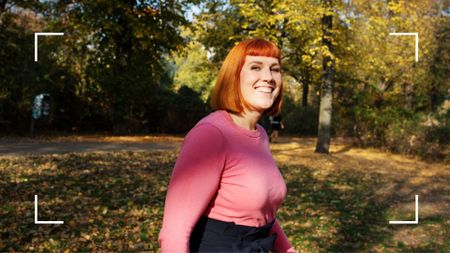 Walking vs running - which is better for your health goals?
Walking vs running - which is better for your health goals?If you're balancing up the benefits of walking vs running, here's what personal trainers want you to know
By Lauren Clark Last updated
-
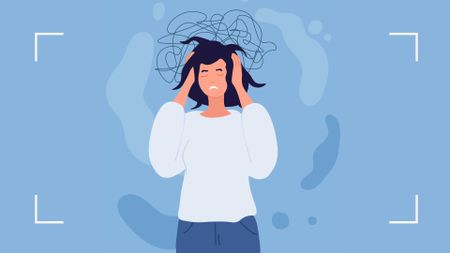 Caregiver burnout: “You must prepare early so you’re not firefighting through your tears”
Caregiver burnout: “You must prepare early so you’re not firefighting through your tears”Caregiver burnout is a serious problem, here an expert explains the symptoms to look for and where to get help
By Grace Walsh Published
-
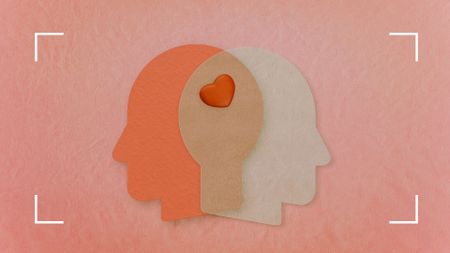 Can getting back with an ex ever work out? We ask an expert
Can getting back with an ex ever work out? We ask an expertHere’s everything you need to know about getting back with an ex, plus warning signs to avoid
By Grace Walsh Published
-
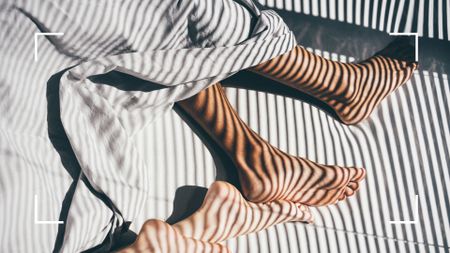 How to sleep in the heat: 21 tips to try when it's too hot outside
How to sleep in the heat: 21 tips to try when it's too hot outsideIt can be hard to know how to sleep in the heat, so here sleep specialists, nutritionists, and doctors tell us how to do it best
By Grace Walsh Last updated
-
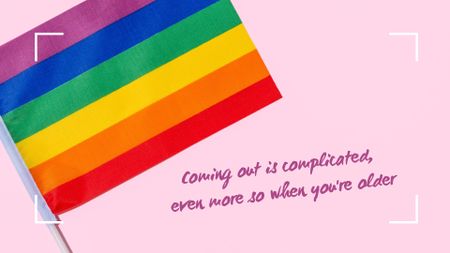 Opinion: Coming out is complicated, even more so when you’re older
Opinion: Coming out is complicated, even more so when you’re olderLater in life lesbianism, Lilly for short, is a thing. But why do some women only come out as gay in middle age?
By Caramel Quin Published
